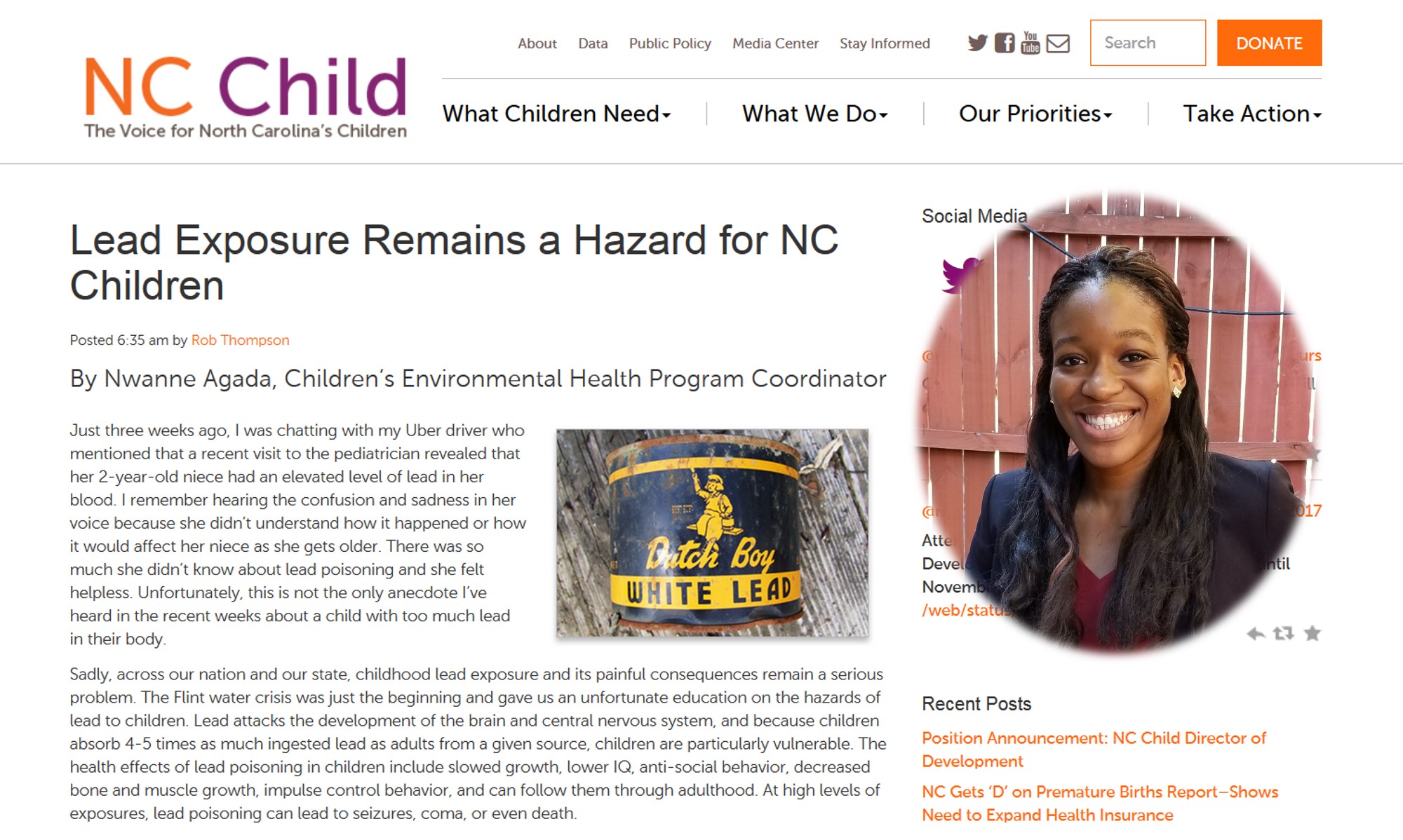MS Environmental Health alumna, Nwanne Agada (MSEH ’17), wrote a blog about childhood lead poisoning in North Carolina (NC), which gives a brief overview of lead poisoning in children and its health effects, what specific populations in NC are disproportionately affected by lead poisoning, and how NC is working to ensure that children do not have to deal with the long-term effects of lead poisoning. Nwanne is currently working as a Children’s Environmental Health Program Coordinator at NC Child, and they have been conducting a lot of work with the NC Childhood Lead Poisoning Prevention Program (NC CLPPP) to help them maintain, record and publish elevated blood lead levels in counties all across NC. Nwanne explained that through public policy, NC can grow closer to its goal of reducing lead poisoning among children through three policies/ practices: 1) requiring lead-safe certification of rental housing and all child-occupied facilities (e.g. child-care centers) before they can be sold or occupied by new tenants, 2) passing legislation to enforce testing of drinking water in daycares and schools, and 3) working with groups of pediatricians in NC to adopt new lead screening protocols for infants and toddlers.





